
Sign in to your Collider account
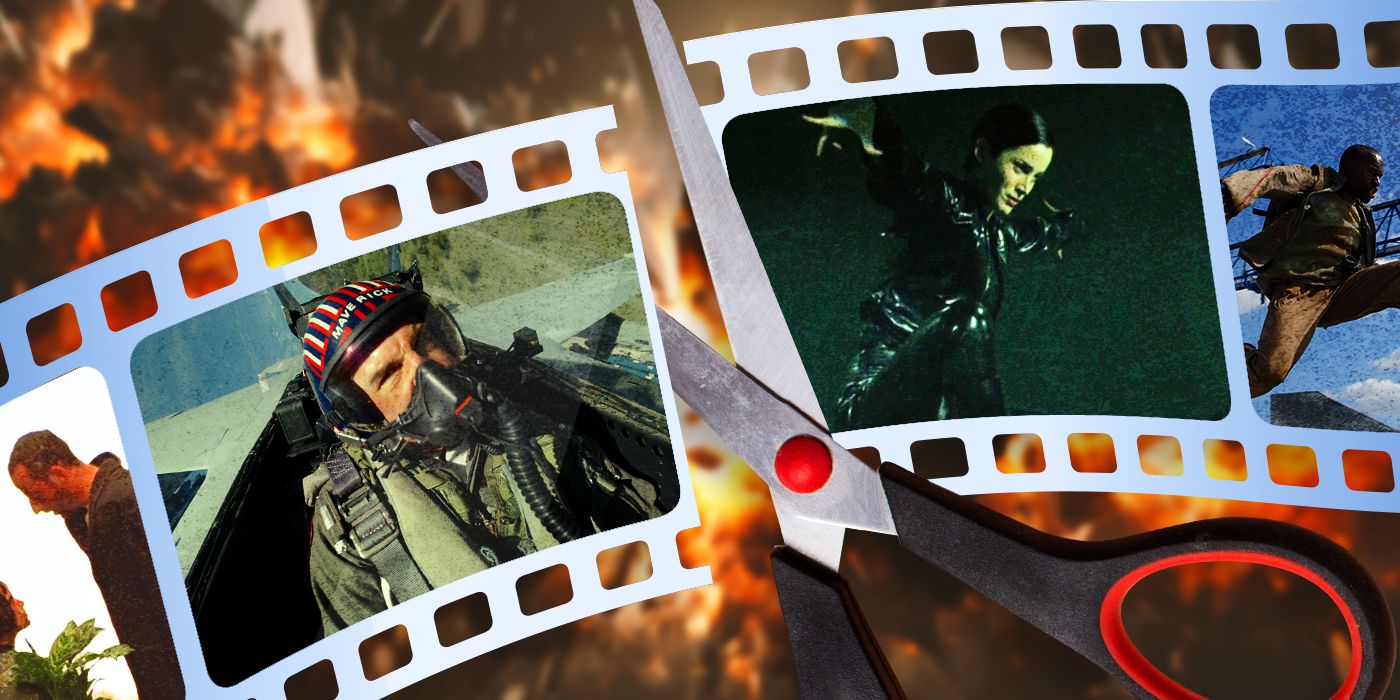 Custom Image by Nimesh Perera
Custom Image by Nimesh Perera
Editing is a fundamental aspect of making any great movie, but it is specifically important within the creation of action cinema. There is more to making a great action movie than just assembling a number of impressive fight scenes; action films that are genuinely regarded as classics have to move at an appropriate pace, develop their characters thoroughly, and develop an internal continuity that makes sense.
It is often said that films face a serious “make or break” moment in the editing room, as it is the job of the post-production crew to ensure that the hard work that was done on set ends up paying off. If all goes well, these films have the potential to be massive blockbusters that help prop up the entire entertainment industry. Here are the ten best action movies that are perfectly edited, ranked.
10 ‘The Terminator’ (1984)
Directed by James Cameron
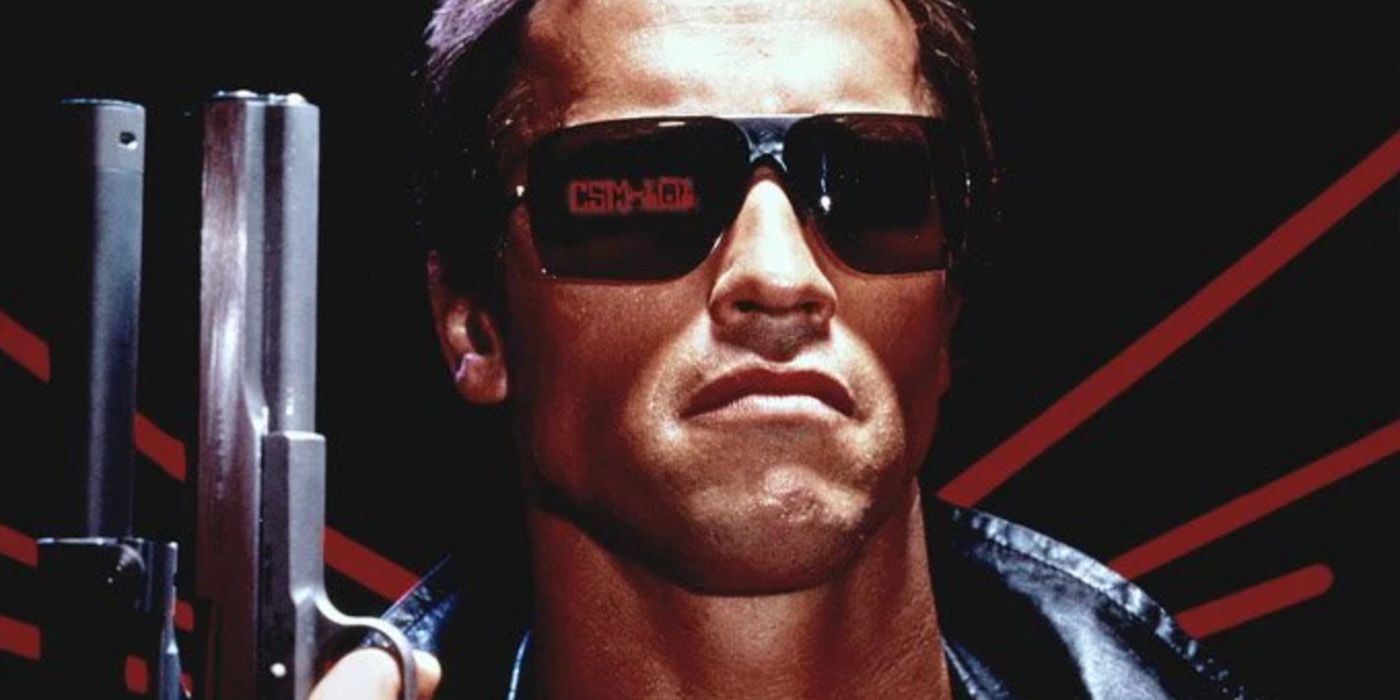 Image via Orion Pictures
Image via Orion Pictures The Terminator was a showcase for what James Cameron could do on a limited budget, as he certainly did not have the resources that he would later be granted with when he developed Titanic and Avatar. The Terminator had to work very hard to ensure that its depiction of time travel made sense within the context of the franchise; it could have very easily been very confusing, making it harder to invest in Sarah Connor (Linda Hamilton) as a protagonist.
The Terminator feels just as much like a neo-noir thriller as it does a science fiction action film, and that’s a credit to how brilliantly it is edited. Although many would cite Terminator 2: Judgment Day as the single greatest film in the series, it would not have reached the level of acclaim that it did if it was not for the original classic.
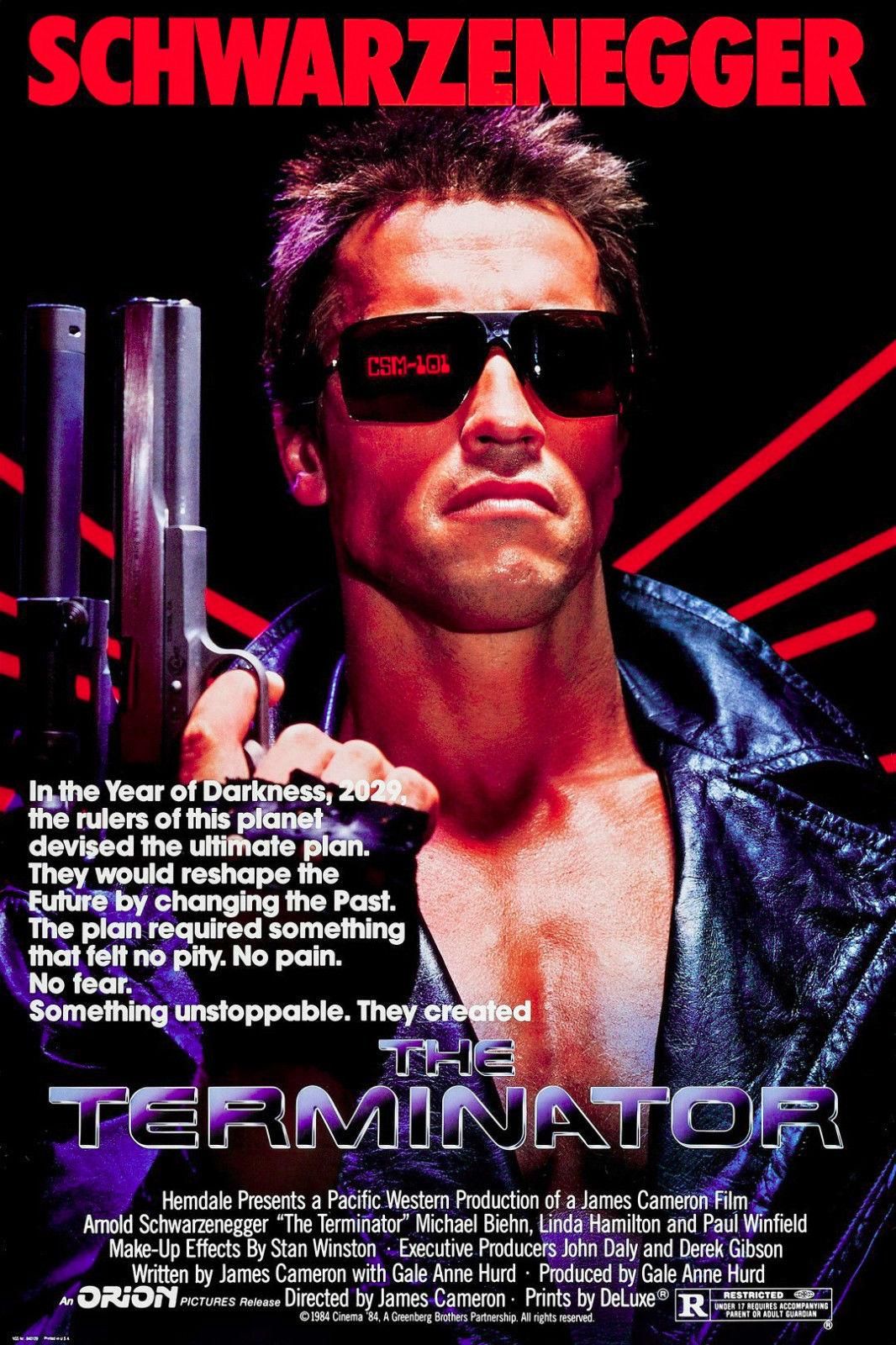
A relentless cyborg assassin is sent from the future to kill Sarah Connor, whose unborn son is destined to lead the human resistance against machines. Protected by a soldier also sent from the future, Sarah must navigate a deadly game of cat and mouse to ensure her survival and humanity's future.
Release Date October 26, 1984
Director James Cameron
Runtime 107 Minutes
Writers James Cameron , Gale Anne Hurd , William Wisher
9 ‘Aliens’ (1986)
Directed by James Cameron
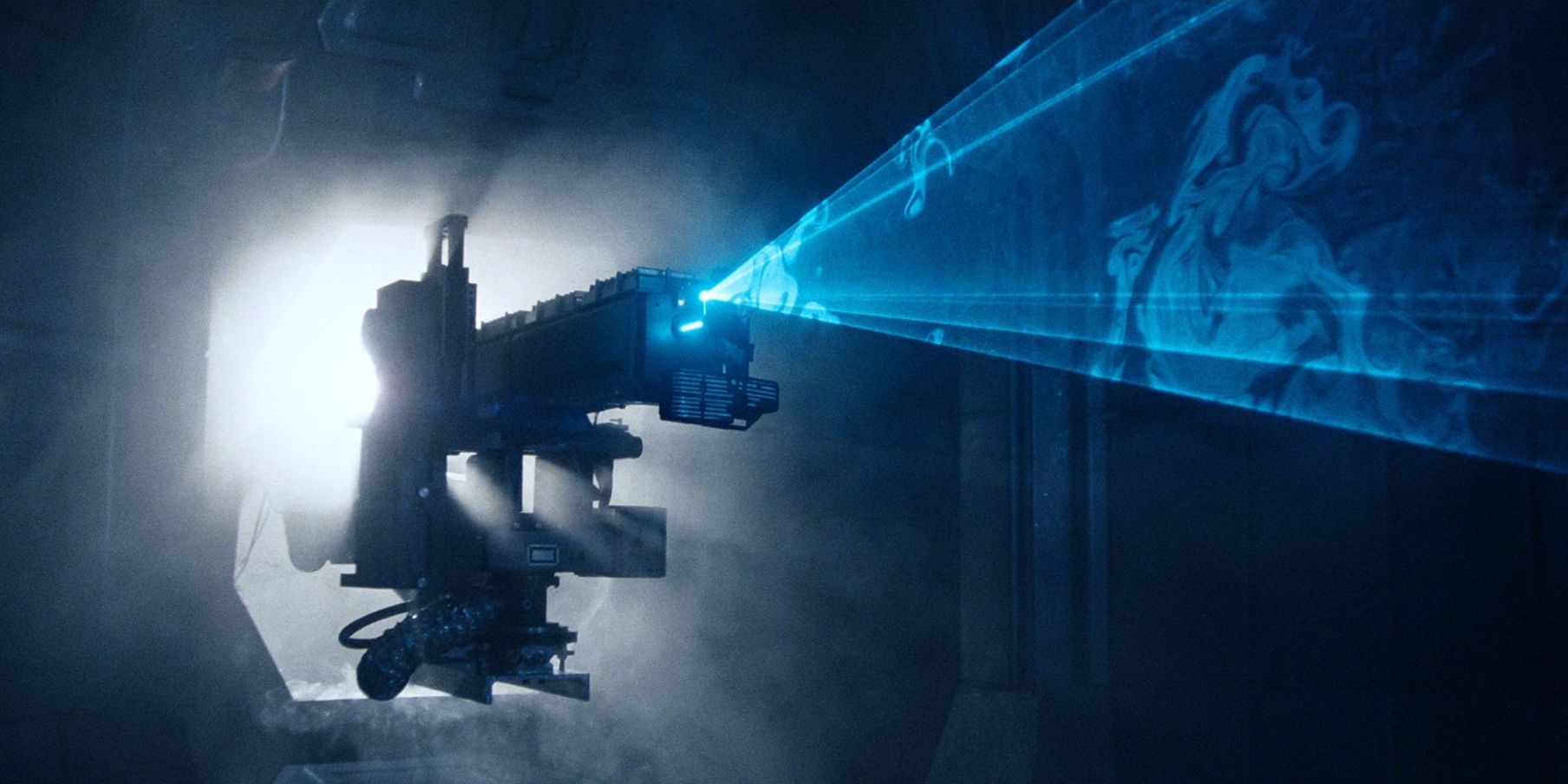 Image via 20th Century Studios
Image via 20th Century Studios Aliens was a very ambitious sequel, as it turned the straight up horror of Ridley Scott’s 1979 classic Alien into a massive action spectacle. While there was always the risk that Aliens would feel overindulgent, Cameron was able to balance out the set pieces in order to maximize the tension, and show how Ellen Ripley (Sigourney Weaver) began to grow into a more maternal figure and questions what the intentions of the Weyland Corporation actually are.
Aliens featured groundbreaking visual effects, makeup, and costuming that holds up well today because Cameron made the entire film feel as realistic as possible. While some may criticize the fact that it basically reiterates the ending of the first Alien with another Xenomorph getting shot out of an airlock, it’s a credit to the excellent pacing of Aliens that it does not feel entirely derivative.
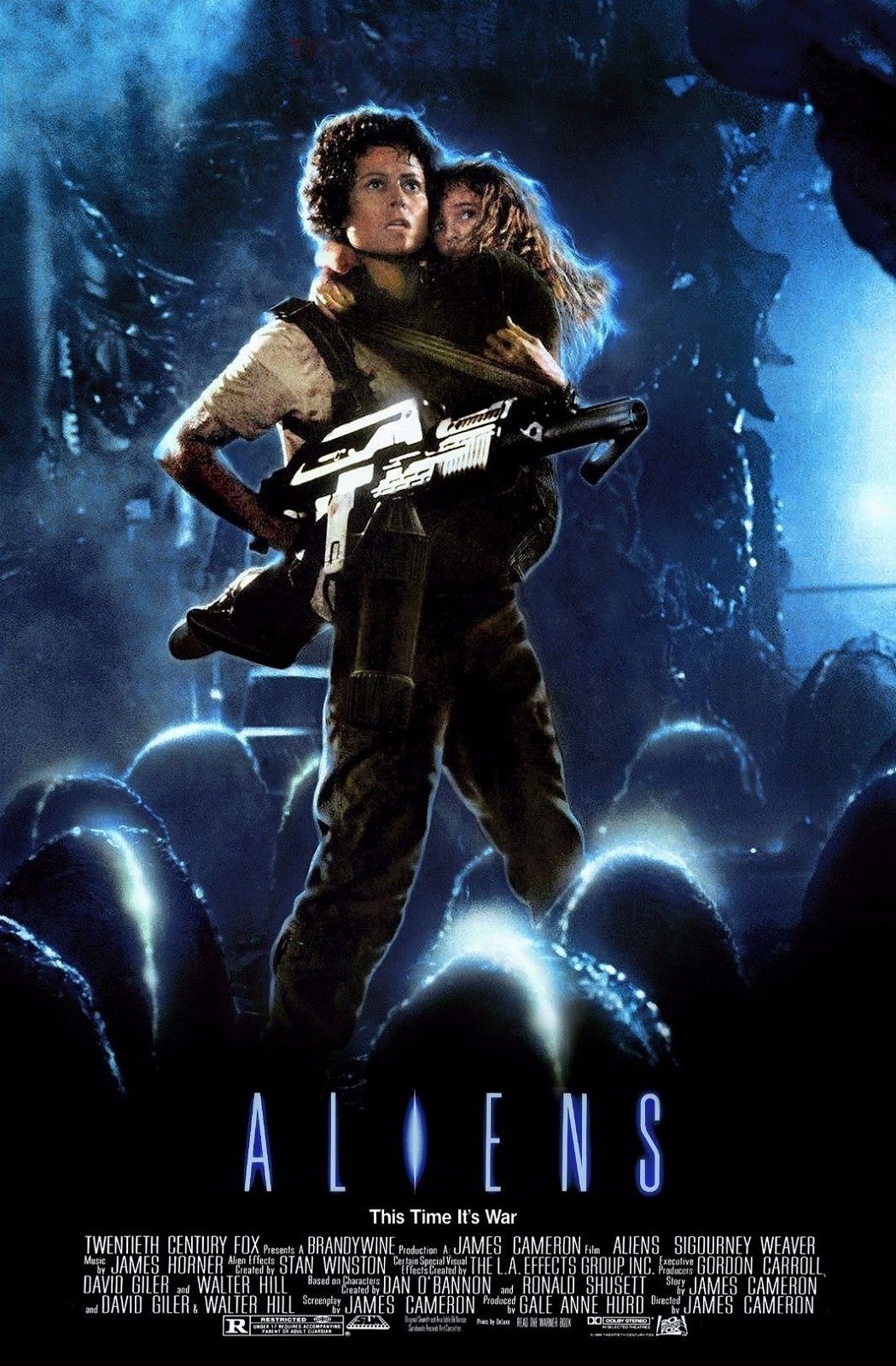
Decades after surviving the Nostromo incident, Ellen Ripley is sent out to re-establish contact with a terraforming colony but finds herself battling the Alien Queen and her offspring.
Release Date July 18, 1986
Director James Cameron
Runtime 137 minutes
Main Genre Sci-Fi
Writers James Cameron , David Giler , Walter Hill
Studio 20th Century Fox
8 ‘Casino Royale’ (2006)
Directed by Martin Campbell
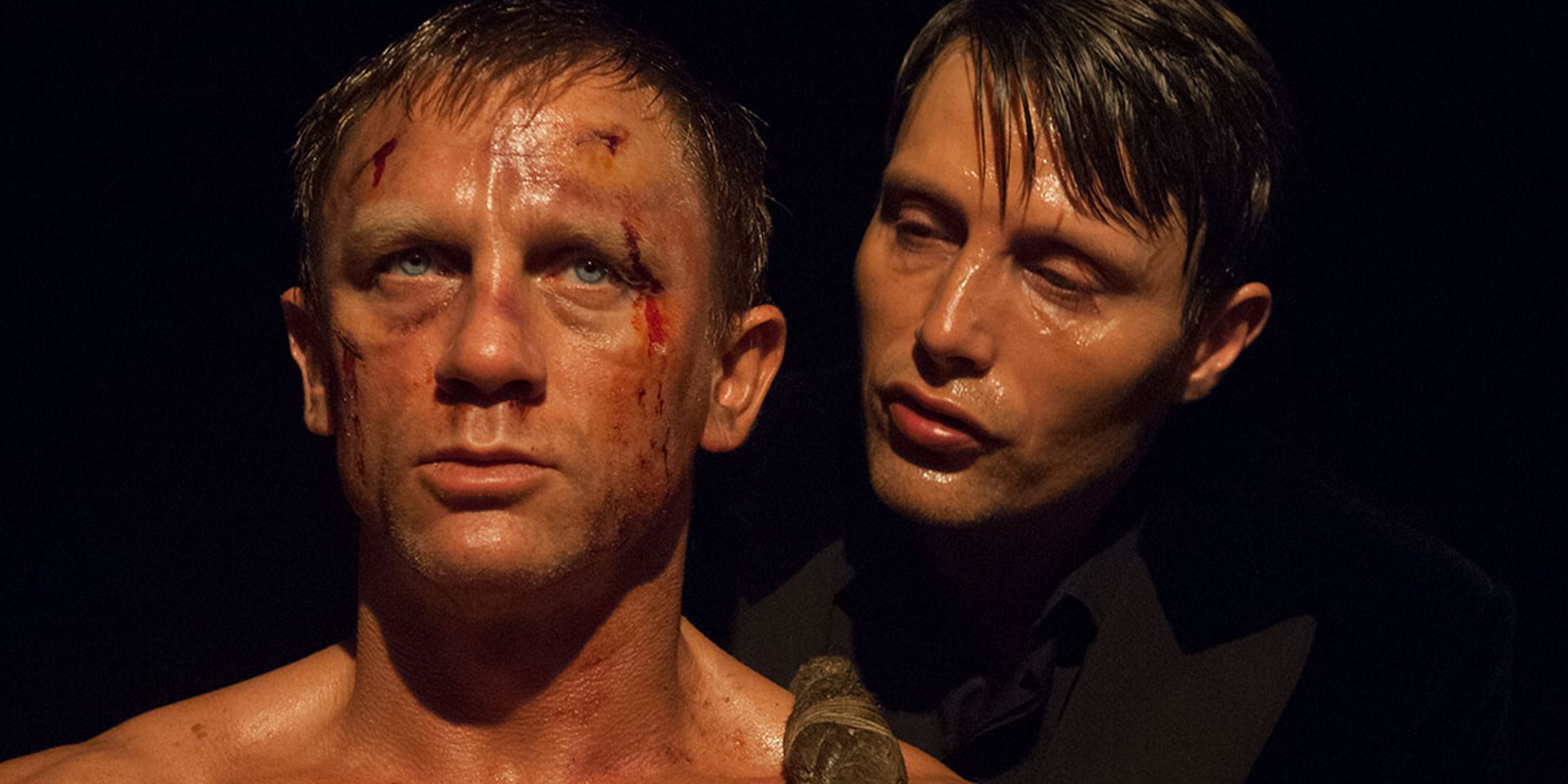 Image via Sony Pictures Releasing
Image via Sony Pictures Releasing Casino Royale was a bold step forward for the James Bond franchise, as it attempted to tell the origin of 007 for the first time. Although the previous films starring Pierce Brosnan had grown far too silly in tone, Casino Royale introduced Daniel Craig’s version of Bond during his initial recruit to MI6 and relationship to Vesper Lyn (Eva Green).
Casino Royale moves at an electrifying pace, as it calls to intention the stakes of Bond’s mission when he finds himself at the stakes of a high stakes poker tournament that attracts international terrorism. Although the action is about as brutal and immediate as nearly anything else in the entire series, Casino Royale strikes an even deeper level when it explores how the tragedy within Bond’s romantic life shapes him into the dark, cynical character that he would ultimately become.
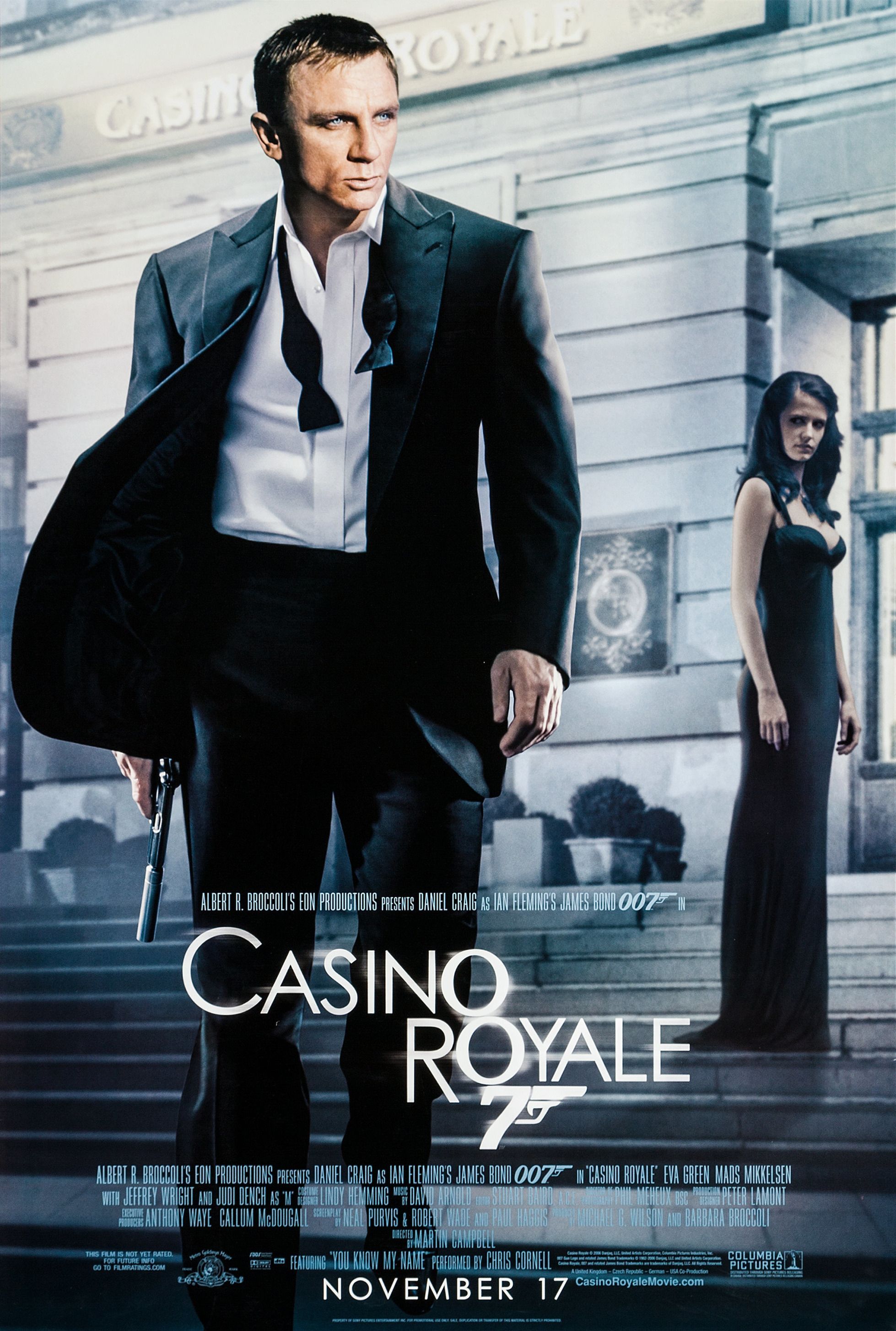
Release Date November 14, 2006
Runtime 144 minutes
Writers Neal Purvis , Robert Wade , Paul Haggis , Ian Fleming
Budget $150 million
Studio(s) Sony
Distributor(s) Sony
7 ‘Top Gun: Maverick’ (2022)
Directed by Joseph Kosinski
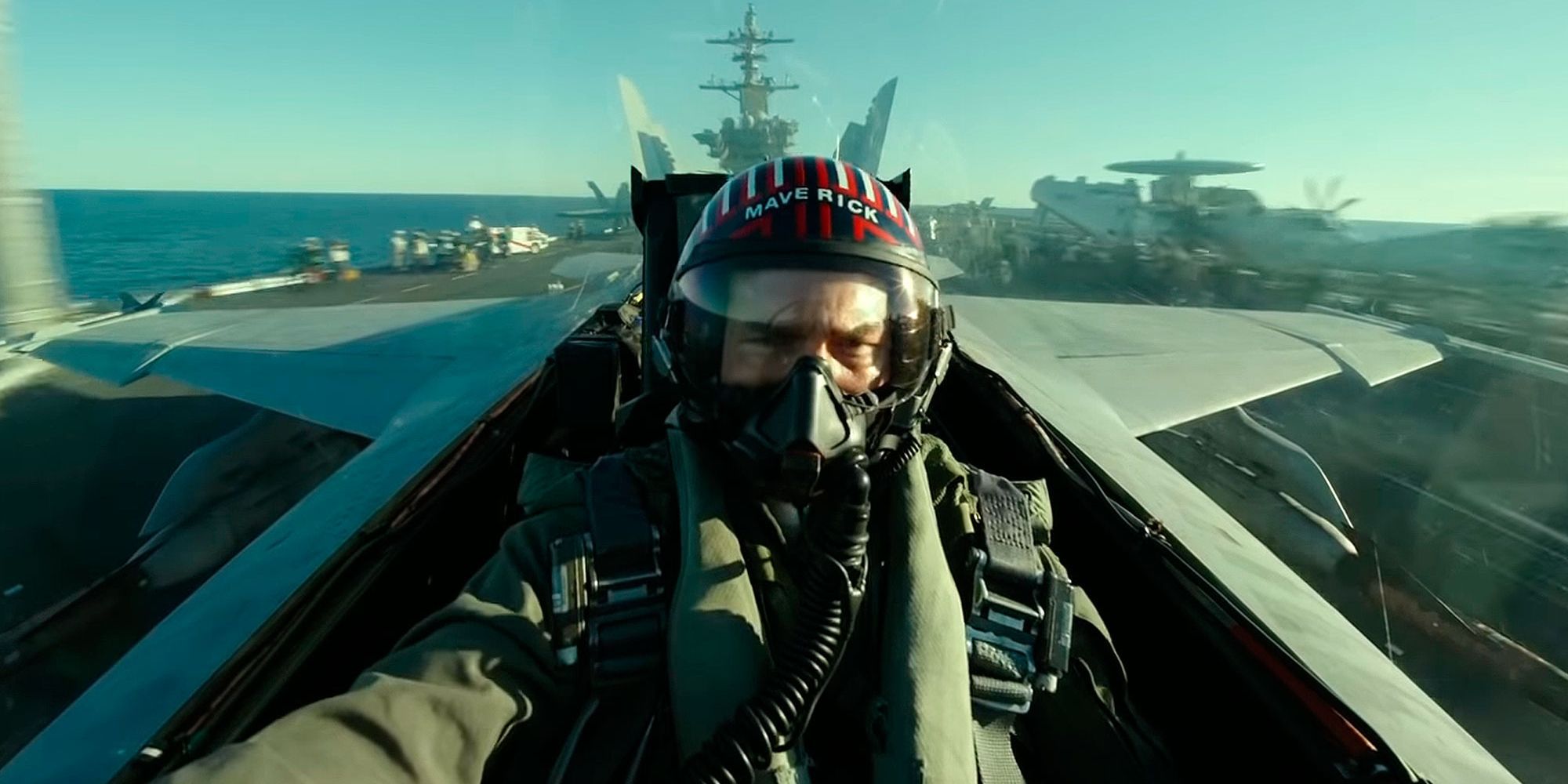 Image via Paramount Pictures
Image via Paramount Pictures Top Gun: Maverick is perhaps the greatest possible version of a “legacy sequel,” as it combines the perfect amount of nostalgia for Tony Scott’s original classic with a new story that developed a deeper understanding of Pete Mithchell (Tom Cruise). Director Joseph Kosinski made his affinity for the 1986 film apparent, as Top Gun: Maverick opens with a loving recreation of some of its most iconic shots.
Top Gun: Maverick features some of the best air-based combat scenes in cinematic history, made even stronger by the fact that Cruise was in the cockpit for almost the entire time. The fact that such death-defying stunts were captured and translated to audiences everywhere is a testament to the brilliant editing on display in Top Gun: Maverick, and why it ended up earning the reputation of being the film that “saved the movies” in the aftermath of the COVID-19 pandemic.
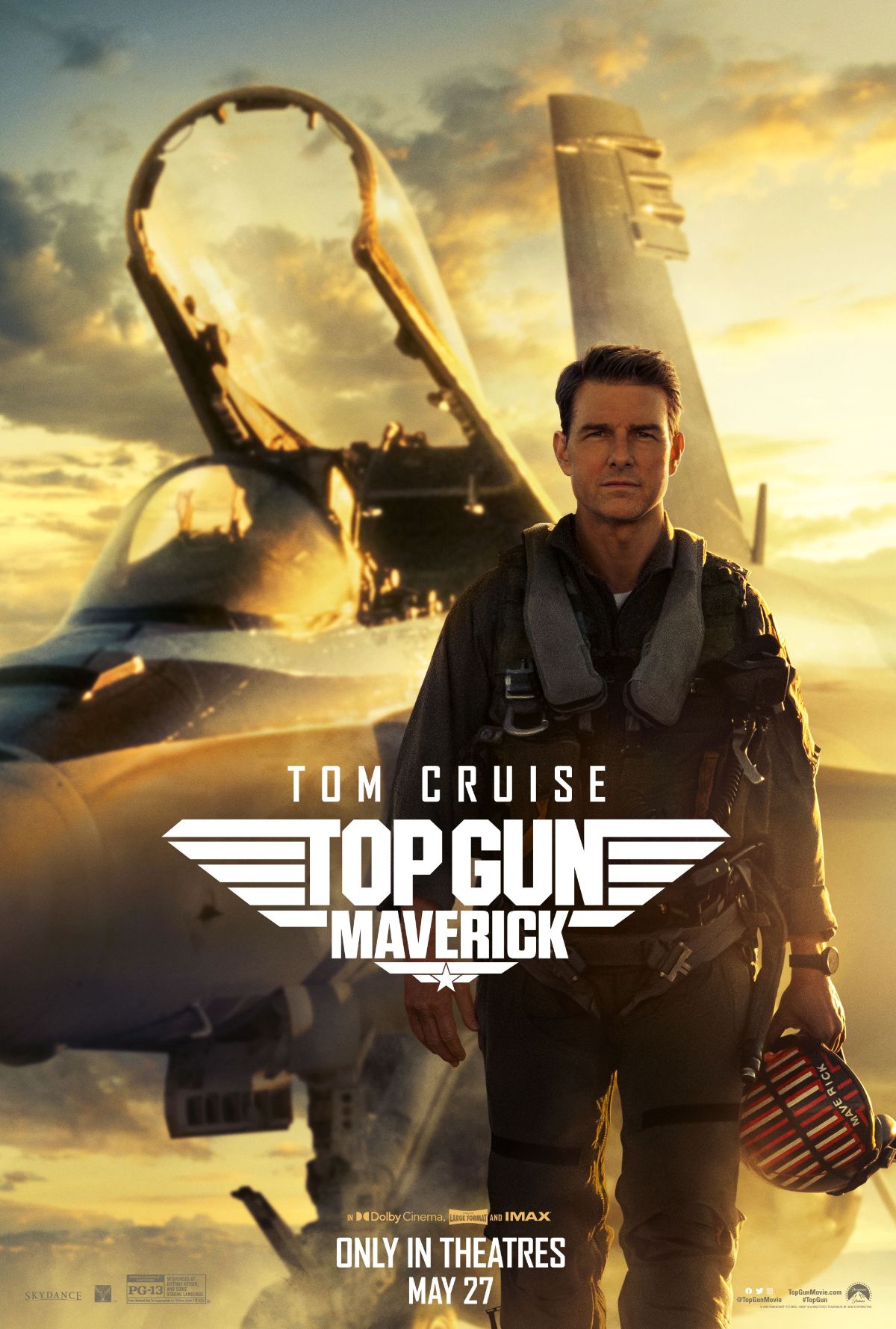
After thirty years, Maverick is still pushing the envelope as a top naval aviator, but must confront ghosts of his past when he leads TOP GUN's elite graduates on a mission that demands the ultimate sacrifice from those chosen to fly it.
Release Date May 27, 2022
Director Joseph Kosinski
Runtime 146
Studio Paramount Pictures
6 ‘Leon: The Professional’ (1994)
Directed by Luc Besson
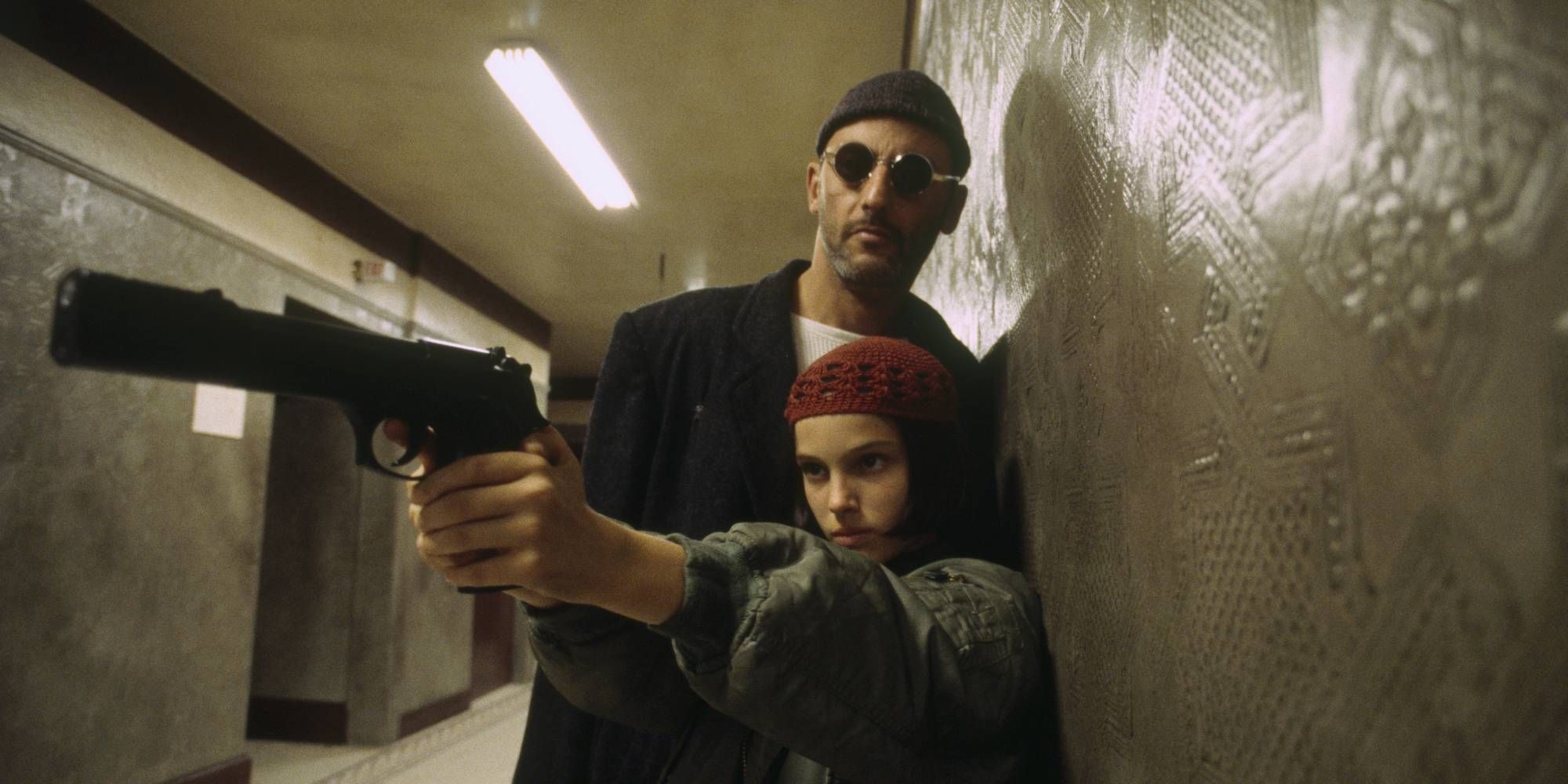 Image via The Walt Disney Company France
Image via The Walt Disney Company France Leon: The Professional is a masterwork of stylization from Luc Besson, a divisive filmmaker whose visual hallmarks have certainly made all of his work unique. Although many would argue that Besson films like The Messenger: The Story of Joan of Arc or Lucy could be classified as being “style over substance,” Leon: The Professional works because it tells the intimate story of the bond that forms between a young girl (Natalie Portman) and a ruthless assassin (Jean Reno).
Leon: The Professional was able to show how the world of crime was viewed through the eyes of a child, but never depicted the concept in a way that deviated from the dark tone. Leon: The Professional set such a high precedent for Besson’s work as a visual storyteller that all of his subsequent work began to suffer when viewed in comparison.
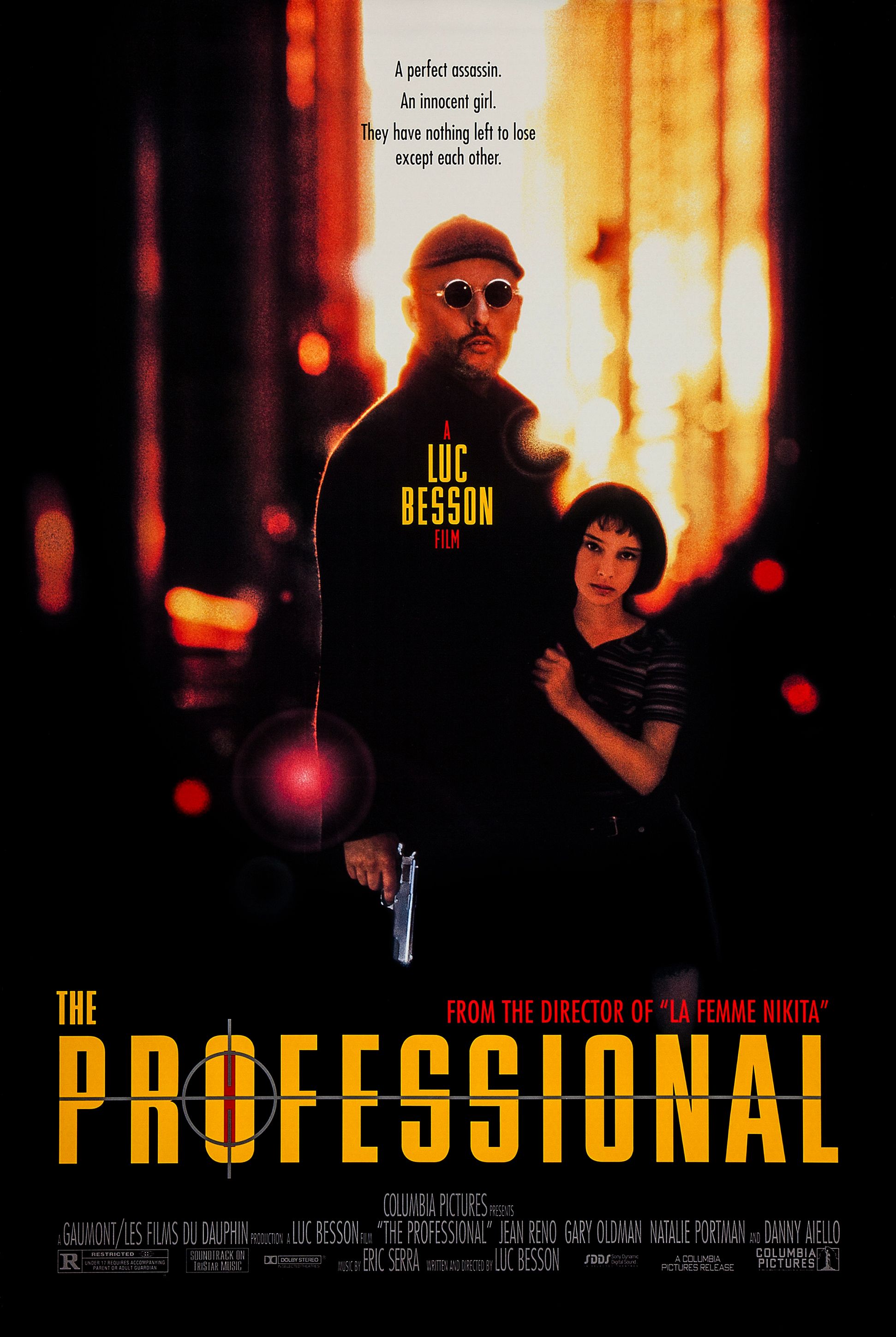
Léon: The Professional
Release Date November 18, 1994
Director Luc Besson
Runtime 110 minutes
Writers Luc Besson
5 ‘The Matrix’ (1999)
Directed by Lana and Lilly Wachowski
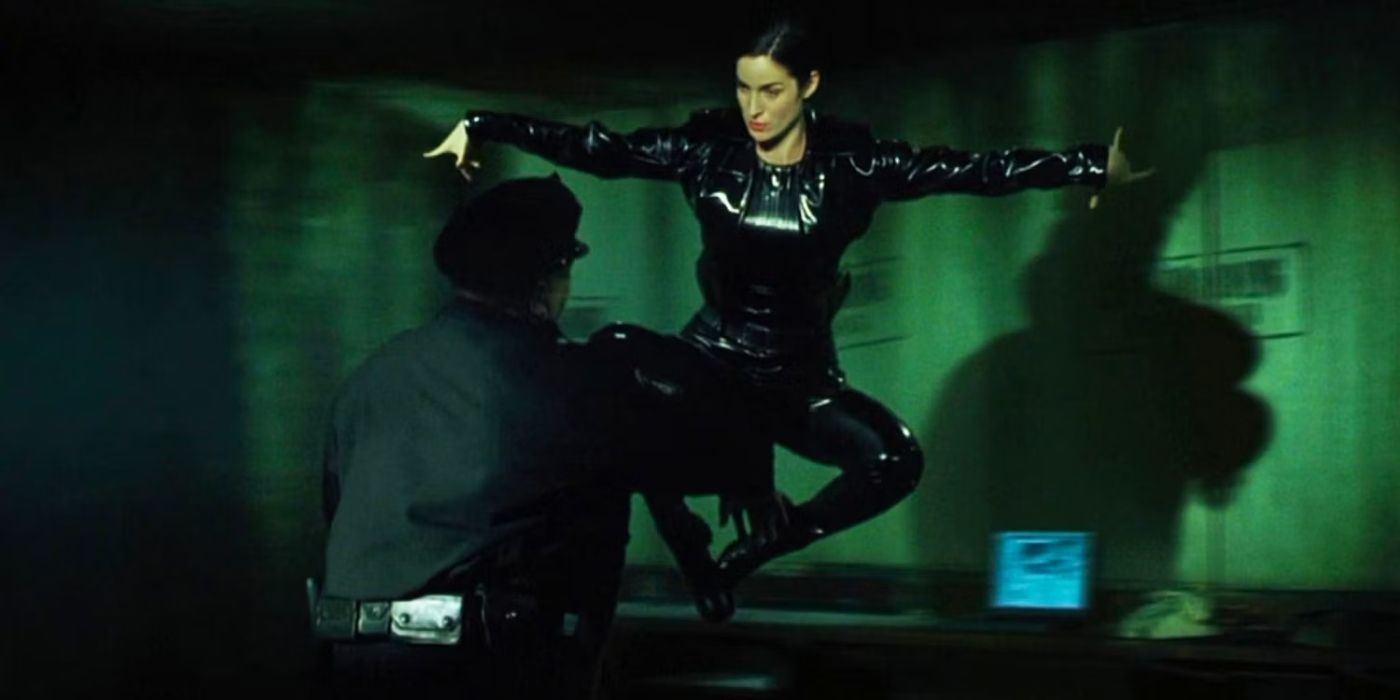 Image via Warner Bros. Pictures
Image via Warner Bros. Pictures The Matrix is a miracle of a movie, as it is very hard to imagine that a studio like Warner Bros. would be able to fund a completely original science fiction film like this today. The brilliance of the editing in The Matrix is that it actually forced viewers to question the nature of their own reality; after examining the way that Neo (Keanu Reeves) breaks free of the Matrix, viewers may have questioned whether they themselves were also living in a simulation.
The Matrix is perhaps best known for its innovative visual storytelling, as the film edited together over 100 cameras worth of footage to create the iconic “Bullet Time” sequence in which Neo faces off with Agent Smith (Hugo Weaving) during his attempt to save Morpheus (Laurence Fishburne). It’s also impressive that a mainstream, commercial blockbuster was able to hint at deeper themes about anti-capitalism and transient sexual identity.
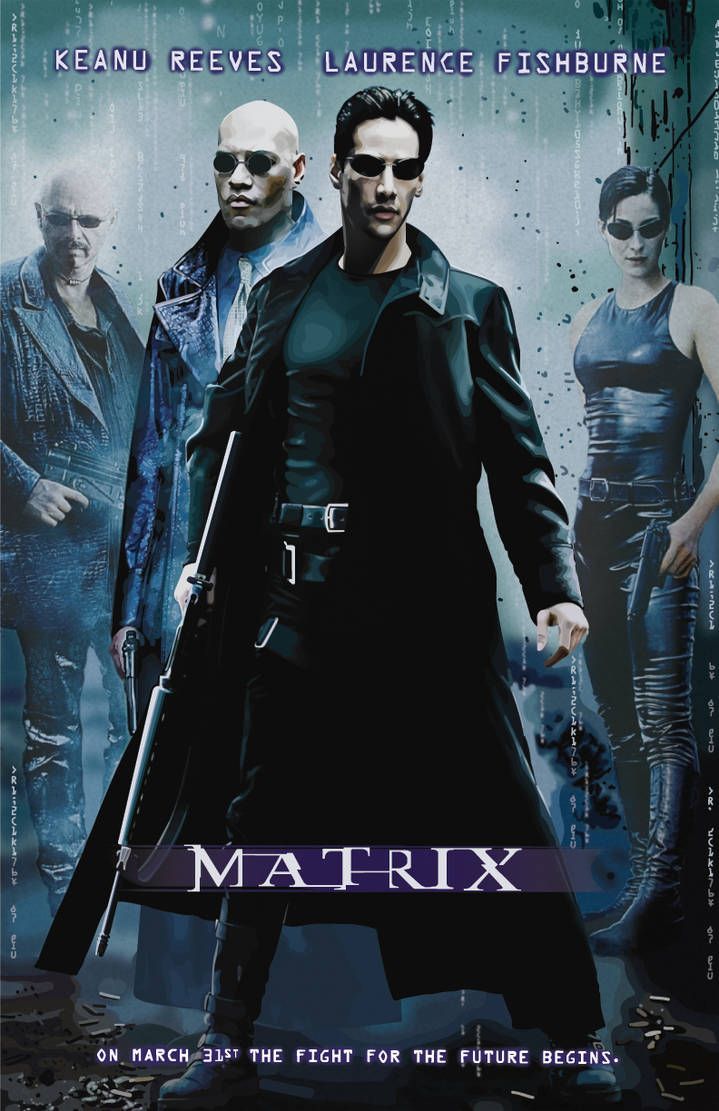
When a beautiful stranger leads computer hacker Neo to a forbidding underworld, he discovers the shocking truth--the life he knows is the elaborate deception of an evil cyber-intelligence.
Release Date March 31, 1999
Runtime 136 minutes
4 ‘Baby Driver’ (2017)
Directed by Edgar Wright
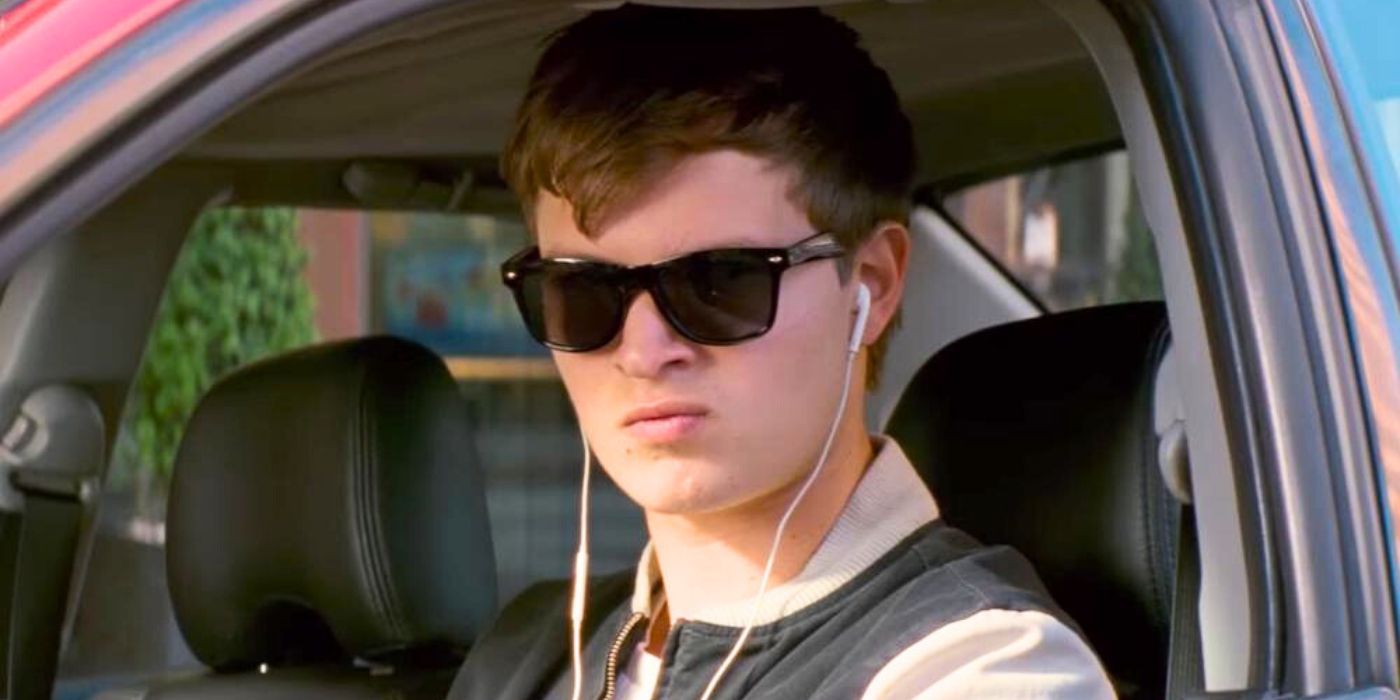 Image via Sony
Image via Sony Baby Driver was a straight up throwback to classic car chase movies, and even resulted in the destruction of several vehicles on set.Edgar Wright has always been a filmmaker who has been great at merging music within his work, but Baby Driver made use of a great soundtrack that synced up to every major set piece. Although there is a lot of humor, Baby Driver is certainly one of Wright’s darker films thus far.
The use of music in Baby Driver is more than just a gimmick, as each song that is used has a deep connection to Baby (Ansel Elgort) and how he views the world. The film is also packed with the type of latent visual gags that Wright’s films have become known for, with many that viewers may not have been able to pick up on until they had already watched the film multiple times.
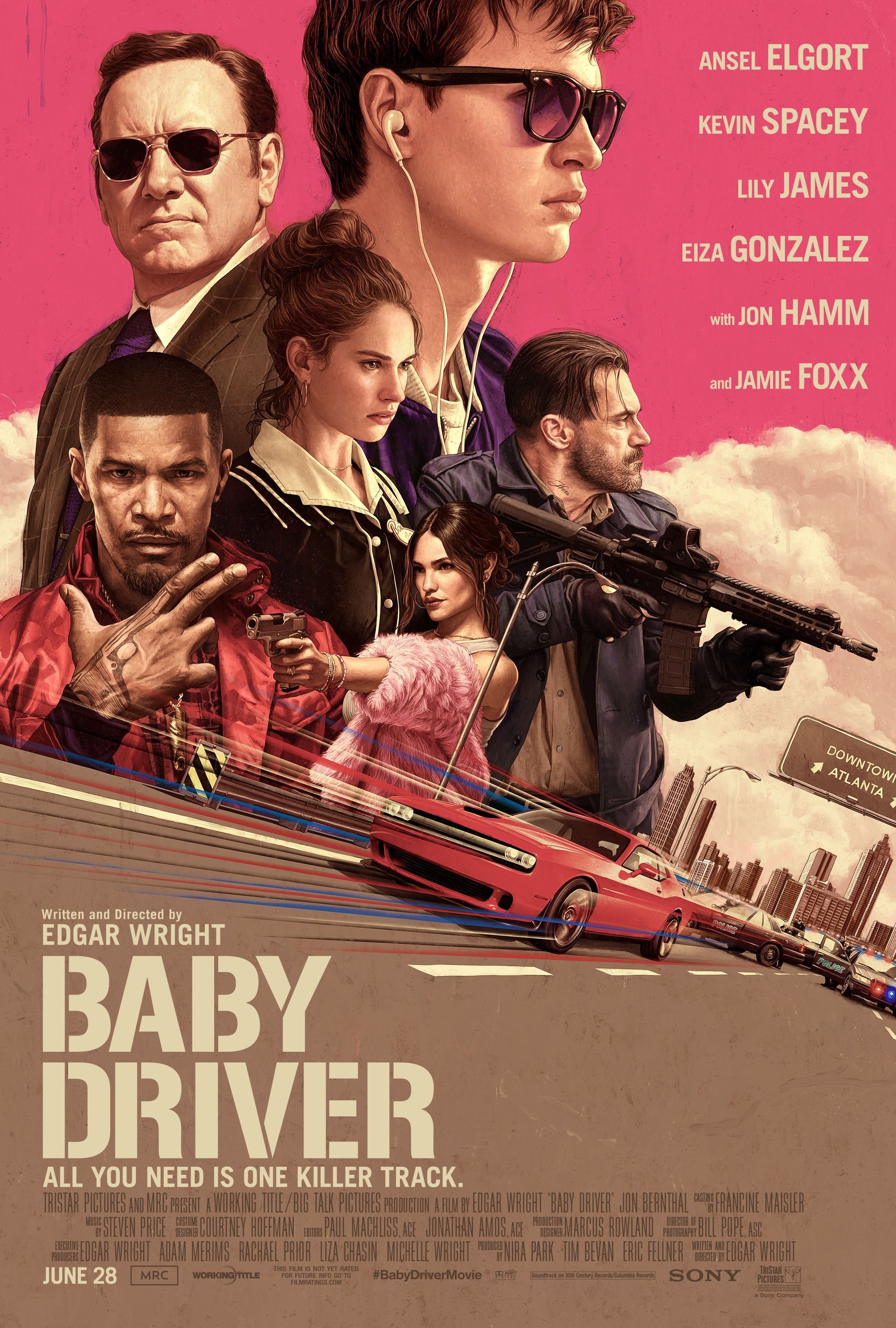
Baby, a talented and music-obsessed getaway driver, works for a ruthless crime boss, using his incredible driving skills to execute flawless heists. Dreaming of a normal life, he falls for a charming waitress and decides to escape his criminal past. But his plans are jeopardized when a heist goes wrong, forcing him to fight for his freedom and the future he desires.
Release Date June 28, 2017
Director Edgar Wright
Runtime 113 minutes
Writers Edgar Wright
Budget $34 million
Studio(s) Sony
Distributor(s) Sony
3 ‘Dirty Harry’ (1971)
Directed by Don Siegel
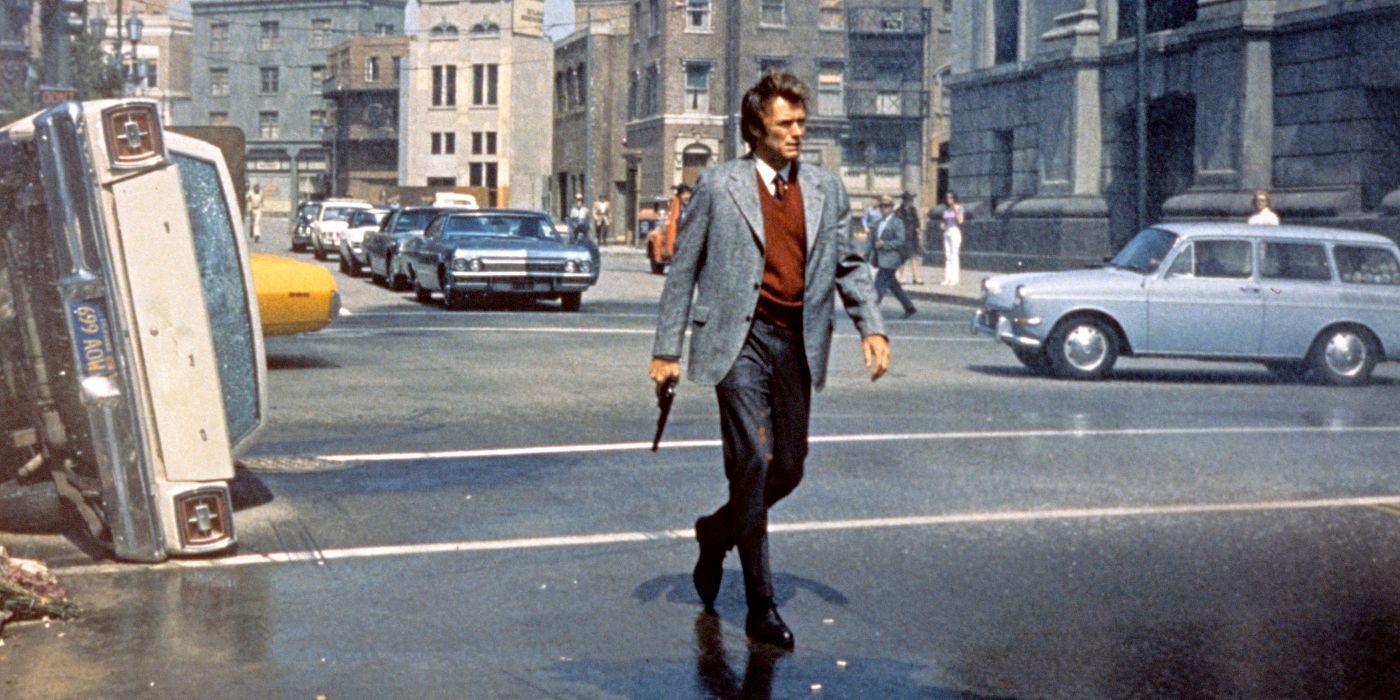 Image via Warner Bros.
Image via Warner Bros. Dirty Harry was a groundbreaking step forward in the development of crime cinema that captured the paranoia about serial killers long before it became mainstream in the 1990s with Se7en and The Silence of the Lambs. Dirty Harry is a cat-and-mouse thriller that keeps the viewers on the edge of their seats the entire time, even though the action is relatively minimal when compared to the other films that Clint Eastwood starred in at the time.
Dirty Harry may have created an iconic hero in Eastwood’s Harry Callahan, but it was not necessarily an authoritarian movie, as there are several flaws within the Los Angeles Police Department that are noted. While the film would inspire four sequels (each of which are entertaining in their own way), none are as tightly edited , well-paced and perfectly executed as the original Dirty Harry.
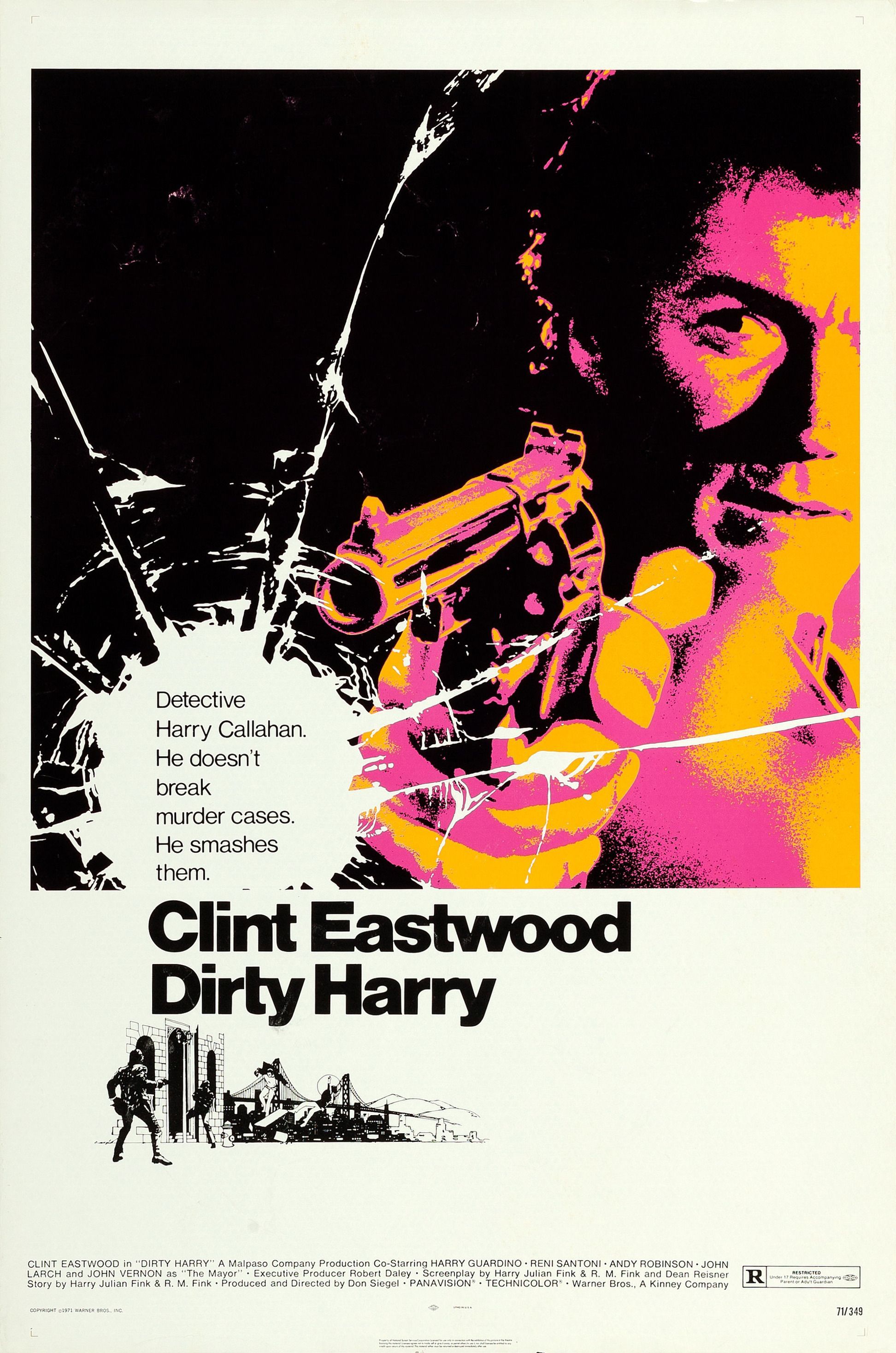
A hardened police inspector is on the trail of a deranged sniper causing havoc in San Francisco. As he navigates the city's underbelly, his ruthless tactics and determination to enforce his own brand of justice bring him into conflict with both the criminal and the legal system.
Release Date December 23, 1971
Director Don Siegel
Runtime 102 minutes
Main Genre Crime
Writers Harry Julian Fink , Rita M. Fink , Dean Riesner , John Milius , Jo Heims
Budget $4 million
Studio(s) Warner Bros. Pictures
Distributor(s) Warner Bros. Pictures
2 ‘Die Hard’ (1988)
Directed by John McTiernan
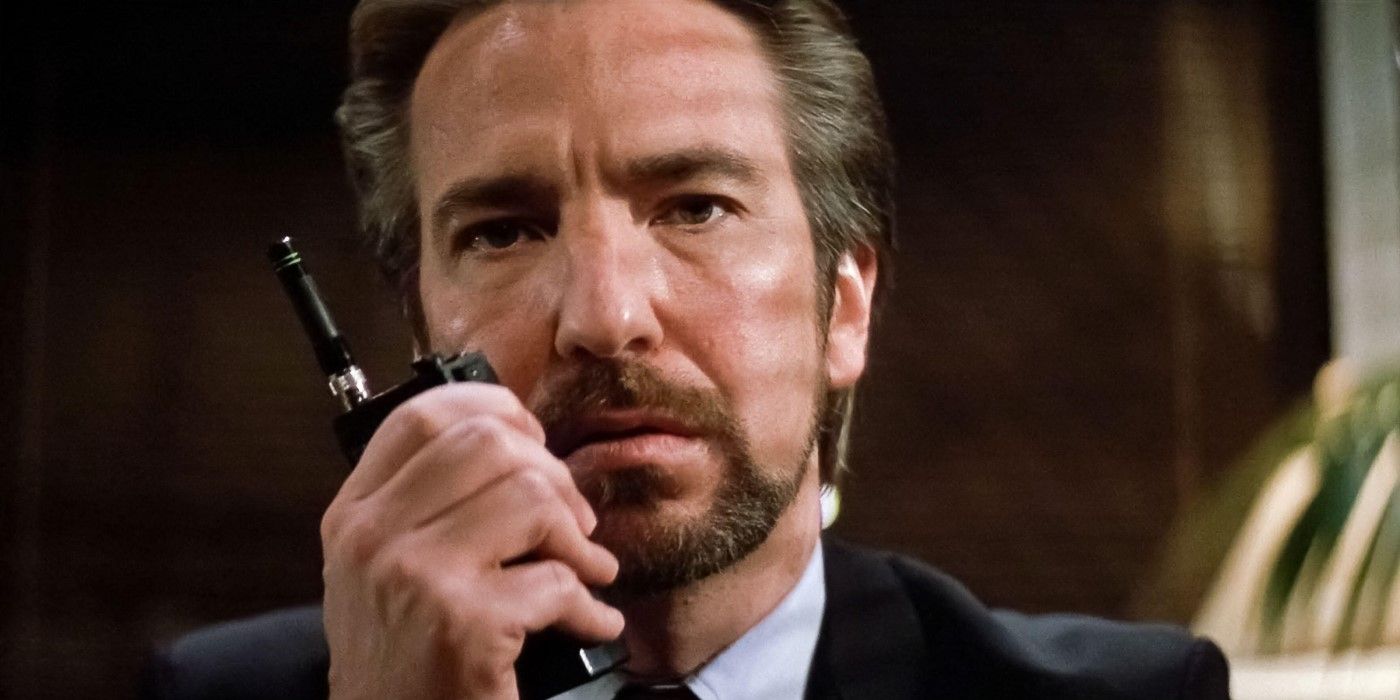 Image via 20th Century Studios
Image via 20th Century Studios Die Hard set the template of what action movies would look like going forward, and is largely responsible for the rebirth that the genre experienced in the 1990s. It was ironically the simplicity of Die Hard that ended up making it so impactful; the film told a great underdog story about how John McClane (Bruce Willis) was placed in an unthinkable situation and forced to rely on his wits alone to survive.
Die Hard was able to create a lot of tension out of a single location, as sticking with the Plaza never made the film feel smaller in scale. It’s also a film that reveals its twists in a clever way, as the information regarding Hans Gruber (Alan Rickman) and his real motivations are revealed to the viewers at the same time in which McClane hears about them for the first time.
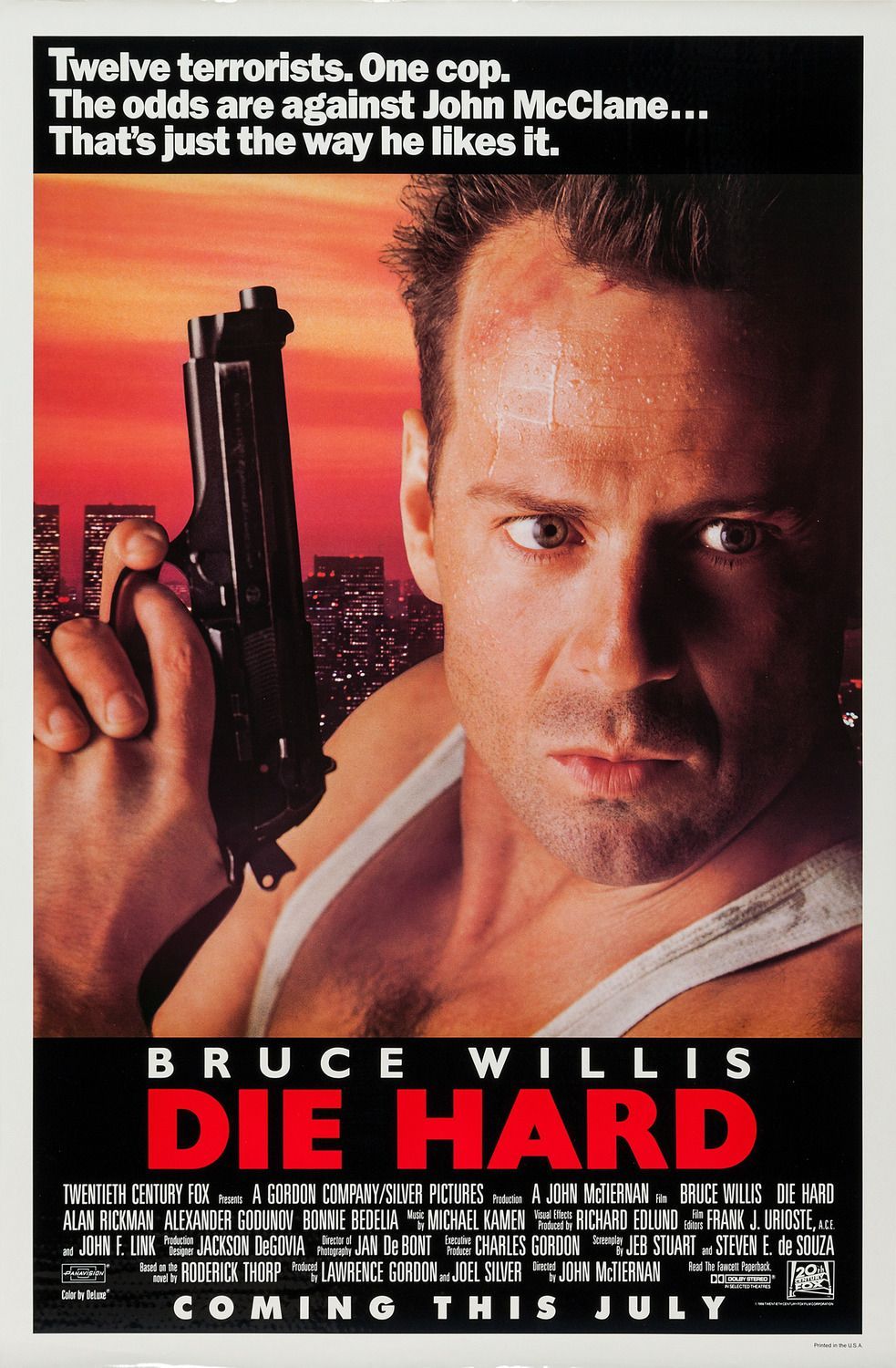
New York City policeman John McClane (Bruce Willis) is visiting his estranged wife (Bonnie Bedelia) and two daughters on Christmas Eve. He joins her at a holiday party in the headquarters of the Japanese-owned business she works for. But the festivities are interrupted by a group of terrorists who take over the exclusive high-rise, and everyone in it. Very soon McClane realizes that there's no one to save the hostages -- but him.
Release Date July 15, 1988
Runtime 132 minutes
Tagline
Franchise Die Hard
Sequel Live Free or Die Hard, Die Hard With a Vengeance, Die Hard 2, A Good Day to Die Hard
Cinematographer Jan de Bont
Producer Lawrence Gordon, Joel Silver
Production Company Silver Pictures, Twentieth Century Fox, Gordon Company
Budget $28 million
1 ‘Raiders of the Lost Ark’ (1981)
Directed by Steven Spielberg
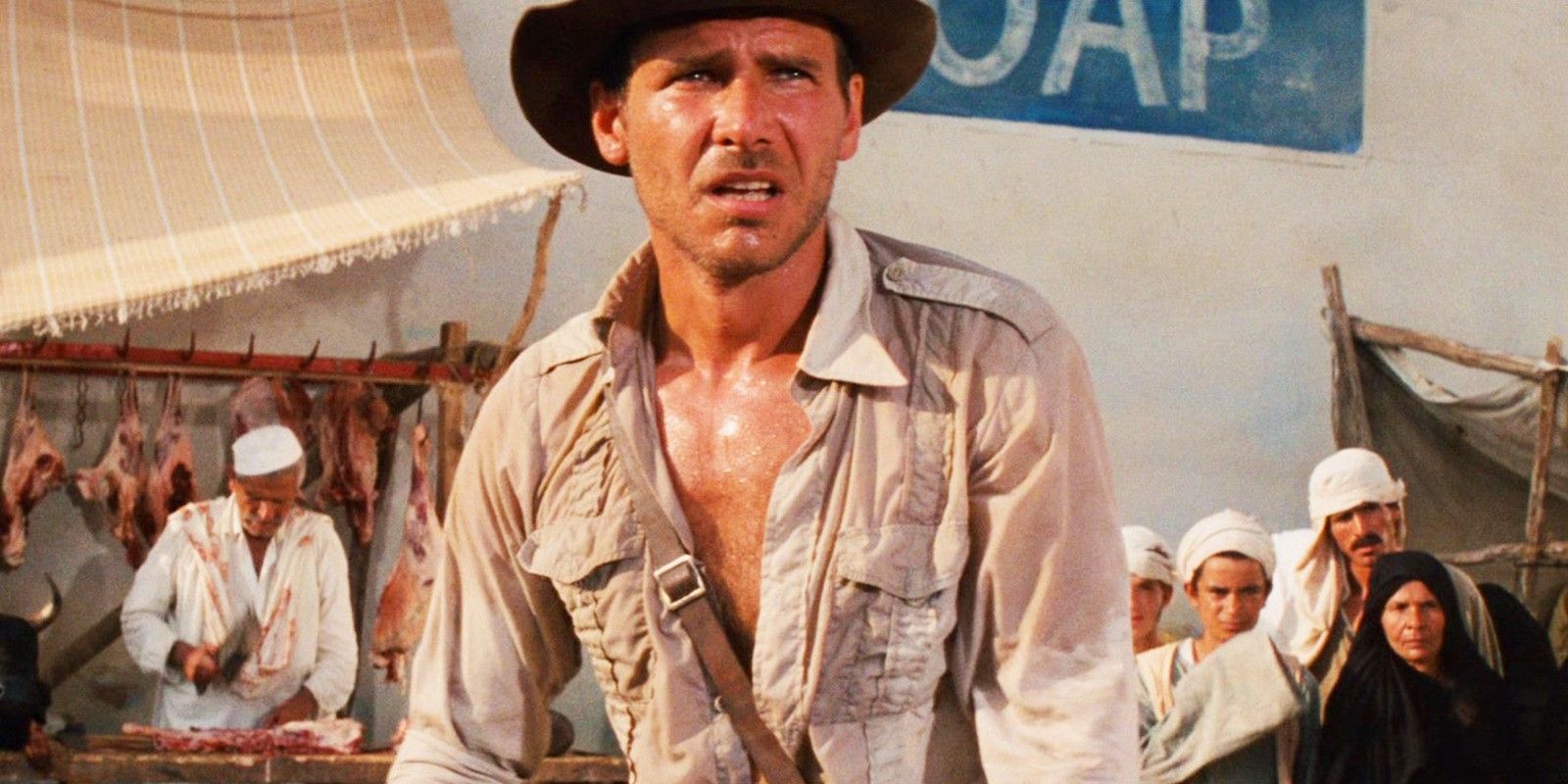 Image via Paramount Pictures
Image via Paramount Pictures Raiders of the Lost Ark is about as perfect as films can get, and the action is almost incidental in a film that is also about the importance of discovery and features a terrific romance.Steven Spielberg is a director who is simply unparalleled when it comes to scope and scale; Raiders of the Lost Ark brought to life practical locations and effects from across the globe, and somehow made them all feel real.
Raiders of the Lost Ark is one of the best paced films ever made, as the audience is introduced to Indy (Harrison Ford) during the peak of his adventures before they get to see his life as Dr. Henry Jones. The final revelation of the power of the Ark of the Covenant that destroys the Nazis is still one of the most effectively edited scare sequences in any movie ever made.
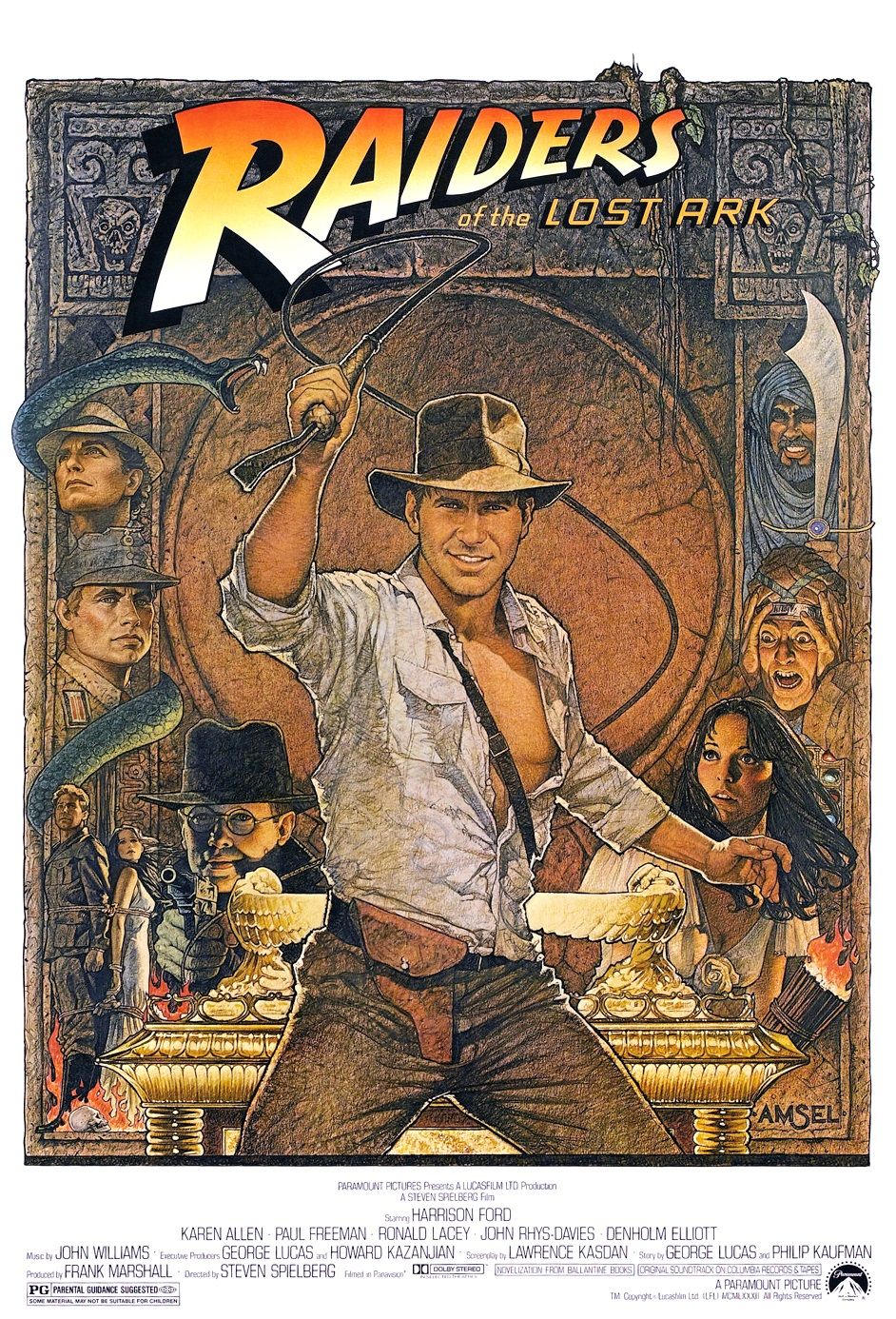
In 1936, archaeologist and adventurer Indiana Jones is hired by the U.S. government to find the Ark of the Covenant before the Nazis can obtain its awesome powers.
Release Date June 12, 1981
Runtime 115 minutes
Production Company LucasFilm
KEEP READING: 10 Movies With the Most Immersive Production Design, Ranked

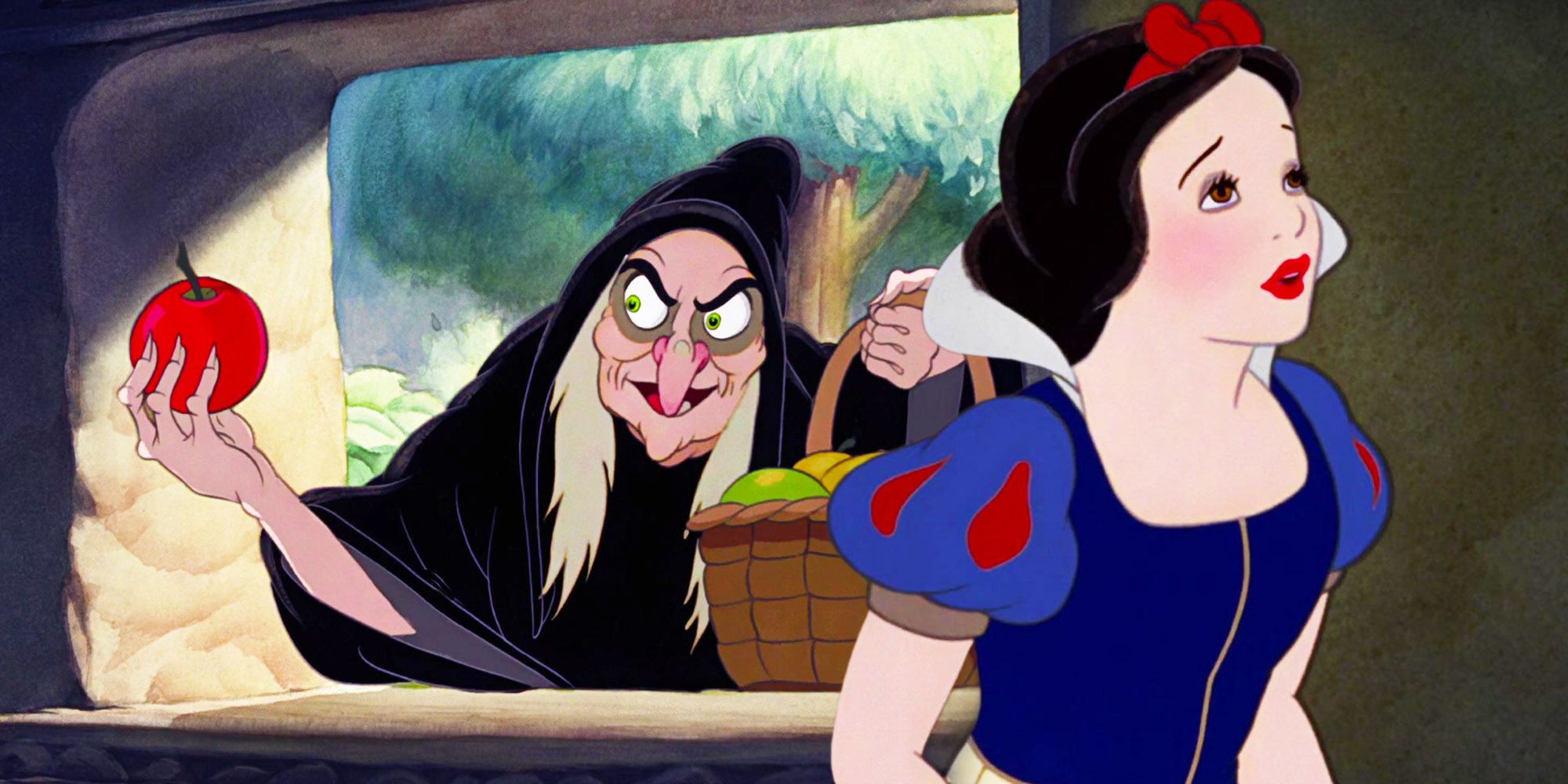
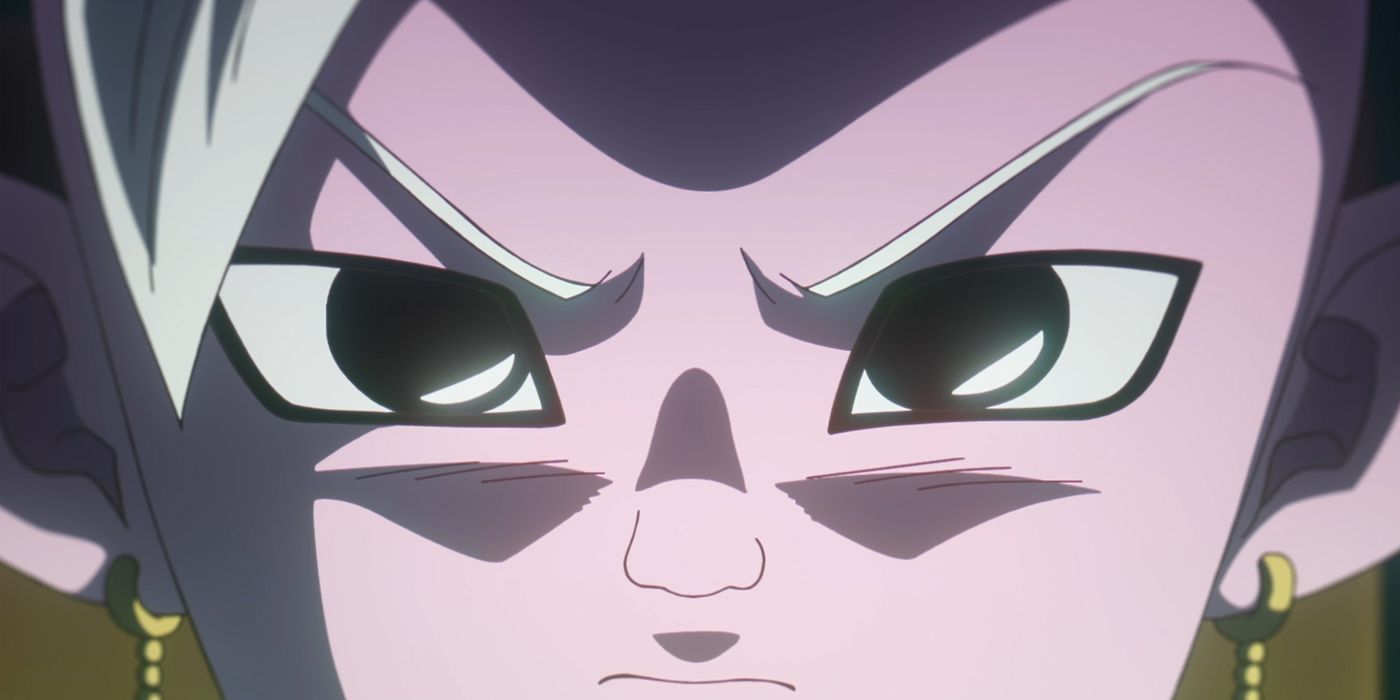
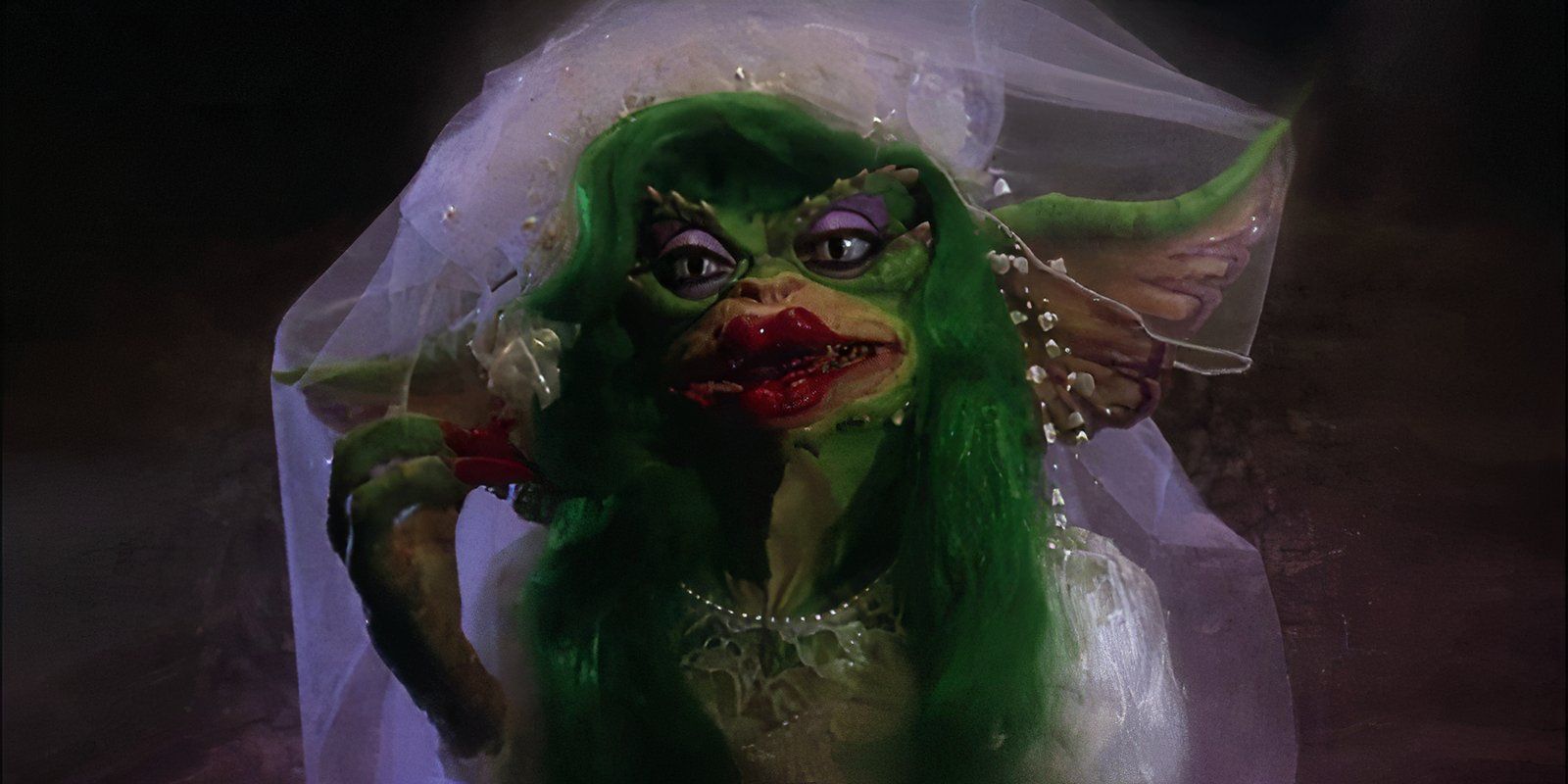
:quality(85):upscale()/2024/10/29/625/n/1922564/ec222ac66720ea653c5af3.84880814_.jpg)
:quality(85):upscale()/2021/07/06/971/n/1922153/7d765d9b60e4d6de38e888.19462749_.png)
:quality(85):upscale()/2024/10/29/957/n/1922441/c62aba6367215ab0493352.74567072_.jpg)

:quality(85):upscale()/2024/10/29/987/n/49351082/3e0e51c1672164bfe300c1.01385001_.jpg)
 English (US) ·
English (US) ·